Reducing BOD, picking the perfect brewhouse

Brock Wagner, founder/brewer,
Saint Arnold Brewing Co. (Houston)
This is an area that we are constantly focusing on from both an environmental and an economic standpoint. We are always working to make our brewing process more efficient. We are working with a large company to help Saint Arnold improve its wastewater disposal. Specifically, we are addressing the sanitation of our wastewater to reduce the BOD (Biological Oxygen Demand) content in the wastewater the brewery releases to the city of Houston. This summer, one of our brewers has been spending time at breweries in Colorado gathering best practices that we will use to reduce our water usage. As water becomes a more valuable resource, it will be increasingly important for craft brewers to be responsible about their usage of that limited resource, and we are making it a priority.
Looking at energy efficiency, one of the positive outcomes of having BrauKon refurbish the old brewhouse we imported from Germany when we moved to our current brewery was the energy efficiency we realized. BrauKon incorporated its energy-saving wort boiling system BrauKon SmartBoil into the brew kettle. It reduces the evaporation rate to two percent, which obviously reduces energy consumption.
Saint Arnold also has an ammonia refrigeration system. The system was already installed in the historic building that Saint Arnold acquired in 2008. The building had previously been used as a frozen food distribution facility for Houston Independent School District, so the cooling and refrigeration was fairly advanced. From an eco-friendly standpoint, ammonia-based refrigeration has a couple major of advantages over CFCs and HCFCs. First, it has an Ozone Depletion Potential rating of zero and a Global Warming Potential rating of zero. Second, it is up to 10 percent more efficient, so it requires less electricity. We modernized the system before moving in several years ago.
Sustainable hop farming
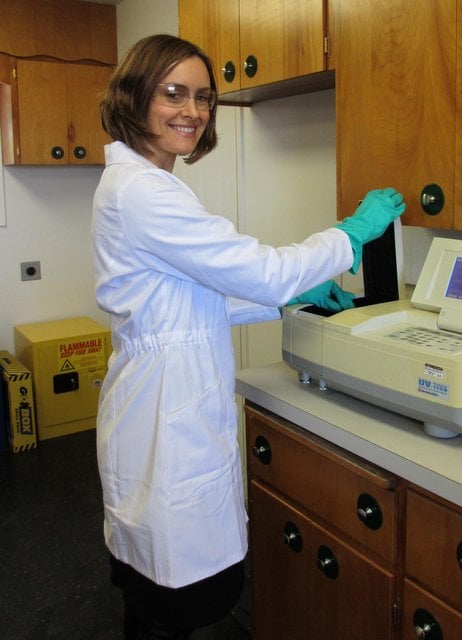
Staci Wallace, quality assurance and sustainability manager,
Crosby Hop Farm LLC (Woodburn, Ore.)
As a single commodity grower, processor and dealer, Crosby Hop Farm faces many complex challenges when it comes to being ecologically sustainable. Given the limitations of the current farming model [chemical dependent and lacking biodiversity] that our industry is dependent upon, we continue to strive for the best possible practices in every aspect of our operation. On the business side, we are working toward zero waste certification with company-wide, eco-friendly policies encompassing everything from recycling, composting, purchasing and printing to holding only zero waste events and installing solar panels.
At the farm level, Crosby Hop Farm is proud to be a Salmon-Safe grower. As part of this certification, we are required to minimize our impact on the watershed and the greater environment. We use the safest possible plant protection products in conjunction with a diligent Integrated Pest Management program that includes constant field scouting. Other non-chemical cultural practices include mechanical crowning and stripping, composting and cover cropping with plants that support beneficial bugs as well as the soil. A crucial component of any eco-friendly practice, and part of our Salmon-Safe commitment, is conserving biodiversity. At Crosby Hop Farm, we have more than 30 acres dedicated to biodiversity, including pollinator gardens, an oak prairie restoration site and undisturbed riparian habitat. While it is not currently feasible for us to grow organic hops, we do offer organic varieties from our partner growers.
We hope that as both a company and an industry, we can continue to advance sustainable farming practices until they become the norm. Increasing collaboration with the brewing industry is key to achieving that end. A growing commitment from leading brewers to source Salmon-Safe and organic hops helps move the industry in the right direction. By choosing highly disease-resistant hops ideal for the growing region, brewers can drive demand for more sustainably grown hops. We are confident that given that demand, the hop industry can raise production of highly disease-resistant varieties that have unique flavor and aroma characteristics as well.
The complete carbon footprint
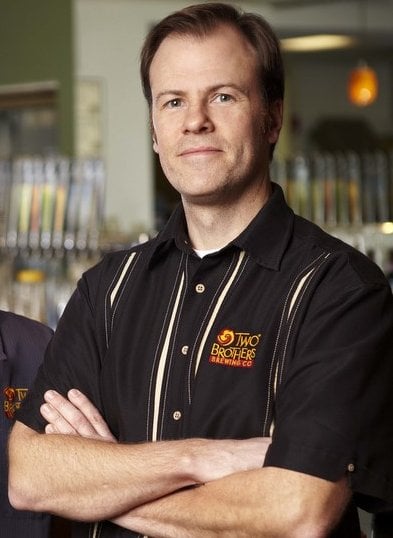
Jason Ebel, co-founder,
Two Brothers Brewing Co. (Chicago)
As a brewer, I am very aware of the carbon footprint of our business, and we keep it in mind with everything we do at Two Brothers Brewing Co. Our team has always taken conscious steps to ensure we are making the least environmental impact possible — which means researching alternatives and possibly spending more money to find ecological substitutions and solutions in the brewing and packaging process. We focus our business on sustainable and organic practices, looking for ways to cut energy costs, recycle water and reuse on-site materials at our tap house and brewpub locations.
More specifically, Two Brothers takes steps to grow our business in an environmentally conscious and stable manner by using recyclable plastics and materials in packaging and using wind-powered energy. We also keep all of our equipment up to date and ensure it is energy efficient. Two Brothers is adamant about conserving water throughout the brewing process, including the use of an ultra-high-efficient boiler, which helps power the brewery and save energy. We also believe in using local ingredients, growing our own herbs and spices on our rooftop garden and buying our hops and barley from the Midwest, which cuts down on food travel miles. Lastly, a large majority of Two Brothers products are USA-made to ensure we use energy efficient, quality items.
Intelligent energy usage

Tobias Becher, senior engineer of process technology and R&D,
Ziemann International GmbH (Ludwigsburg, Germany)
Eco-friendly craft brewing particularly stands for production, which is largely independent of fossil fuels and is worthwhile under several aspects. Initially, it is economically viable, particularly viewed under the aspect of the predicted increase in energy prices due to shortages. Secondly, more and more governments and customers specifically request a CO2-footprint or resource consumption figures for their brewery. This influences not only current consumer purchasing behavior but also ensures site security in regard to construction and expansion projects. Thirdly, independence from fossil fuels enables maximum freedom for the production of beer. Boiling mash in batches, much longer boiling times or colder storage temperatures make economical and ecological sense. Especially in beer markets, where there is a significant trend away from “industrial” beers and towards beer specialties, this technological freedom is the key to success.
At the heart of an eco-friendly craft brewery is a central energy storage tank with two intelligent distribution circuits for the storage and transport medium for water. The high temperature cycle up to 120° C supplies the brewhouse processes. In this area of temperature, additional heat is required. This additional heat can be generated with either the burner of an existing steam generator or with renewable energy resources, for example with wood chips or biogas, obtained from the brewery wastewater. The heat from the atmospheric cycle with max. 95° C can be derived from all conceivable renewable resources due to the temperature level. Solar thermal energy will however play a central role. Furthermore, this cycle enables for the first time, the effective recovery of minimal energy flows such as atmospheric wort re-evaporation with Ziemann Diamond. One further option here is the generation of cold energy, which can be integrated with proven power/heat/cold-co-generation systems.
What’s your water usage ratio?

Bill Covaleski, brewmaster,
Victory Brewing Co. (Downingtown, Pa.)
Respect for natural resources is a foundation of Victory Brewing Co., as embodied in our Headwaters Ale and corresponding grant program. As such, we have endeavored to reduce our water consumption at all levels of our operations. In 2012, we set a target of 5:1 water to beer usage. At that time, we tracked at a 6-7:1 ratio in our Downingtown facility after multiple years of growth and concerted efforts toward conservation. We recently posted ratios averaging 4.93:1 over the last three months.
This ‘victory’ was obtained in several ways. One significant area of gain was in our brewhouse. We found a notable variance across brand recipes in terms residual moisture in the grain bed after lautering, which led us to coordinated trials, aimed at reducing water losses at this stage. We realized reductions in sparge water, chase water between vessels and rinse water after emptying by closely analyzing our usages.
Another large improvement was made in our CIP systems by incorporating grey water (recovered water) in our existing systems. Recovered rinse water used for caustic rinse out on one CIP is now used as the pre-rinse water for the next CIP. We are currently in the process of fine tuning our CIP recipes to recover water currently going to the drain and optimize our caustic rinse out based on caustic solution concentration. Future steps will include using rainwater harvesting for use in the plant for applications such as cooling tower feed water, boiler feed water, wash down hoses, bottle and can warmers, irrigation and toilets, proving what is ‘flushed’ is not always waste!
We know your index finger’s tired, but click “Next” to continue reading this story. You can do it!

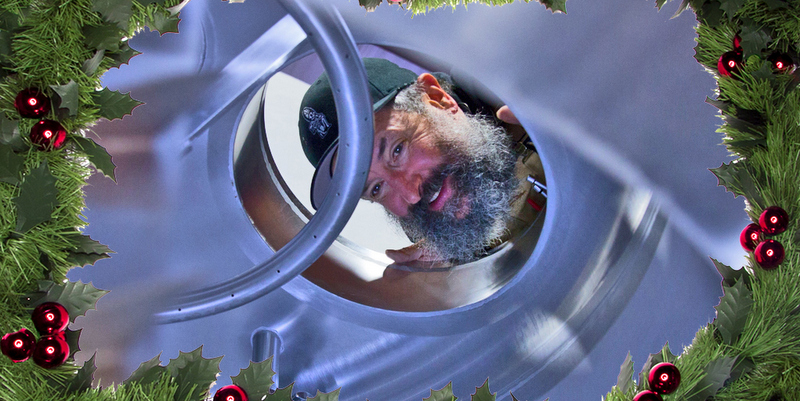
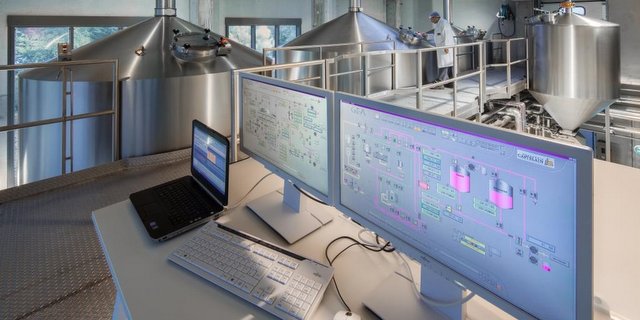
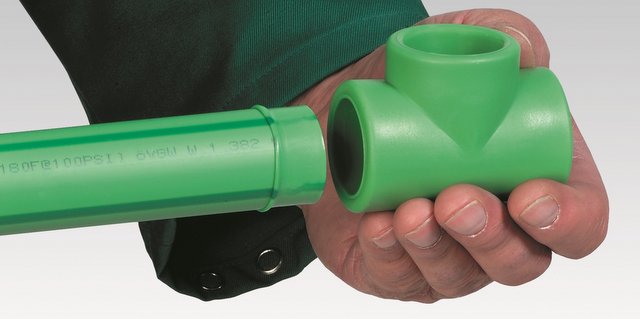
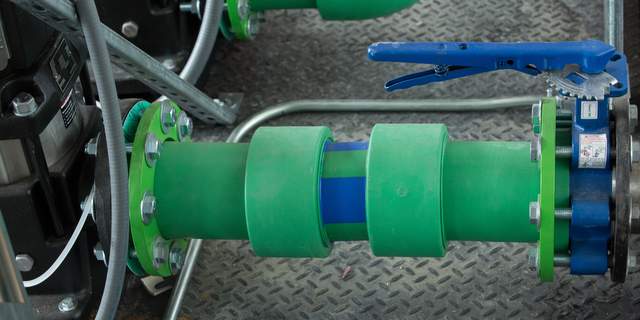
Want your brewery to be eco-friendly? Check out these tips from the pros! http://t.co/NwXKAWXK6c @craftbrewingbiz
Eco-friendly brewing tips from top craft brewing professionals #sustainability #craftbeer http://t.co/jJkd9v5zLr via @craftbrewingbiz
RT @VictoryBeer: Eco-friendly brewing tips from top craft brewers – http://t.co/g3LuGCpeC0 @CraftBrewingBiz #TasteVictory ^MB http://t.co/4…
RT @VictoryBeer: Eco-friendly brewing tips from top craft brewers – http://t.co/g3LuGCpeC0 @CraftBrewingBiz #TasteVictory ^MB http://t.co/4…
Eco-friendly brewing tips from top craft brewing professionals. Great insight from @craftbrewingbiz http://t.co/sdIFsNfSuG
RT @IR_So_Gulf: Craft brew pros and #IR’s Greg Jakobek share eco-friendly brewing tips http://t.co/i2bnxSNZ15 via @craftbrewingbiz
Piping tips for Brewers: http://t.co/SCWgYVEdXz
Craft brew pros and #IR’s Greg Jakobek share eco-friendly brewing tips http://t.co/i2bnxSNZ15 via @craftbrewingbiz
RT @VictoryBeer: Eco-friendly brewing tips from top craft brewers – http://t.co/g3LuGCpeC0 @CraftBrewingBiz #TasteVictory ^MB http://t.co/4…
RT @VictoryBeer: Eco-friendly brewing tips from top craft brewers – http://t.co/g3LuGCpeC0 @CraftBrewingBiz #TasteVictory ^MB http://t.co/4…
RT @VictoryBeer: Eco-friendly brewing tips from top craft brewers – http://t.co/g3LuGCpeC0 @CraftBrewingBiz #TasteVictory ^MB http://t.co/4…
@VictoryBeer @CraftBrewingBiz Great location for a photo, lol. http://t.co/tDiNjp1rqx
RT @VictoryBeer: Eco-friendly brewing tips from top craft brewers – http://t.co/g3LuGCpeC0 @CraftBrewingBiz #TasteVictory ^MB http://t.co/4…
RT @VictoryBeer: Eco-friendly brewing tips from top craft brewers – http://t.co/g3LuGCpeC0 @CraftBrewingBiz #TasteVictory ^MB http://t.co/4…
RT @VictoryBeer: Eco-friendly brewing tips from top craft brewers – http://t.co/g3LuGCpeC0 @CraftBrewingBiz #TasteVictory ^MB http://t.co/4…
RT @VictoryBeer: Eco-friendly brewing tips from top craft brewers – http://t.co/g3LuGCpeC0 @CraftBrewingBiz #TasteVictory ^MB http://t.co/4…
RT @VictoryBeer: Eco-friendly brewing tips from top craft brewers – http://t.co/g3LuGCpeC0 @CraftBrewingBiz #TasteVictory ^MB http://t.co/4…
RT @VictoryBeer: Eco-friendly brewing tips from top craft brewers – http://t.co/g3LuGCpeC0 @CraftBrewingBiz #TasteVictory ^MB http://t.co/4…
RT @VictoryBeer: Eco-friendly brewing tips from top craft brewers – http://t.co/g3LuGCpeC0 @CraftBrewingBiz #TasteVictory ^MB http://t.co/4…
RT @VictoryBeer: Eco-friendly brewing tips from top craft brewers – http://t.co/g3LuGCpeC0 @CraftBrewingBiz #TasteVictory ^MB http://t.co/4…
Eco-friendly brewing tips from top craft brewers – http://t.co/g3LuGCpeC0 @CraftBrewingBiz #TasteVictory ^MB http://t.co/4ksOWzQ0vA
RT @VictoryBeer: Eco-friendly brewing tips from top craft brewing professionals – http://t.co/g3LuGCpeC0 @CraftBrewingBiz #victory^MB http:…
RT @CraftBrewingBiz: Eco-friendly brewing tips from top craft brewing professionals. Thanks a ton @VictoryBeer http://t.co/LeI8psrKkk http:…
RT @HughesBrews: Eco-friendly brewing tips from top craft brewing professionals http://t.co/FNju8JjQv2 via @craftbrewingbiz #craftbeer
RT @HughesBrews: Eco-friendly brewing tips from top craft brewing professionals http://t.co/FNju8JjQv2 via @craftbrewingbiz #craftbeer
RT @HughesBrews: Eco-friendly brewing tips from top craft brewing professionals http://t.co/FNju8JjQv2 via @craftbrewingbiz #craftbeer
Interesting read. https://t.co/MHaofy20RR
Craft breweries finding ways to be tasty with less waste-y http://t.co/8L8HmLFXj4 Go Craft Brew Alliance, @WidmerBrothers @Redhook_Brewery
Eco-friendly brewing tips from top craft brewing professionals http://t.co/FNju8JjQv2 via @craftbrewingbiz #craftbeer
RT @Ale_Asylum: Brewmaster Dean contributed to a feature blog on eco-friendly brewing for @CraftBrewingBiz. Cheers to sustainability! http:…
RT @Ale_Asylum: Brewmaster Dean contributed to a feature blog on eco-friendly brewing for @CraftBrewingBiz. Cheers to sustainability! http:…
RT @Ale_Asylum: Brewmaster Dean contributed to a feature blog on eco-friendly brewing for @CraftBrewingBiz. Cheers to sustainability! http:…
Brewmaster Dean contributed to a feature blog on eco-friendly brewing for @CraftBrewingBiz. Cheers to sustainability! http://t.co/YaZAFAq0Aj
RT @VictoryBeer: Eco-friendly brewing tips from top craft brewing professionals – http://t.co/g3LuGCpeC0 @CraftBrewingBiz #victory^MB http:…
RT @VictoryBeer: Eco-friendly brewing tips from top craft brewing professionals – http://t.co/g3LuGCpeC0 @CraftBrewingBiz #victory^MB http:…
RT @VictoryBeer: Eco-friendly brewing tips from top craft brewing professionals – http://t.co/g3LuGCpeC0 @CraftBrewingBiz #victory^MB http:…
Eco-friendly brewing tips from top craft brewing professionals – http://t.co/g3LuGCpeC0 @CraftBrewingBiz #victory^MB http://t.co/W3uxnEzRpd
Including the estimable @shaunosullivan >> Eco-friendly brewing tips from top craft brewing professionals http://t.co/ngnYaCkhbV
Serge Lubomudrov liked this on Facebook.
Eco-friendly brewing tips from top #craftbrewing professionals: http://t.co/4BNj7iqhop
Jerry Elliott liked this on Facebook.
Tyler Wood liked this on Facebook.
Marilee Rutherford liked this on Facebook.
David Lengvarsky liked this on Facebook.
Jared Read liked this on Facebook.